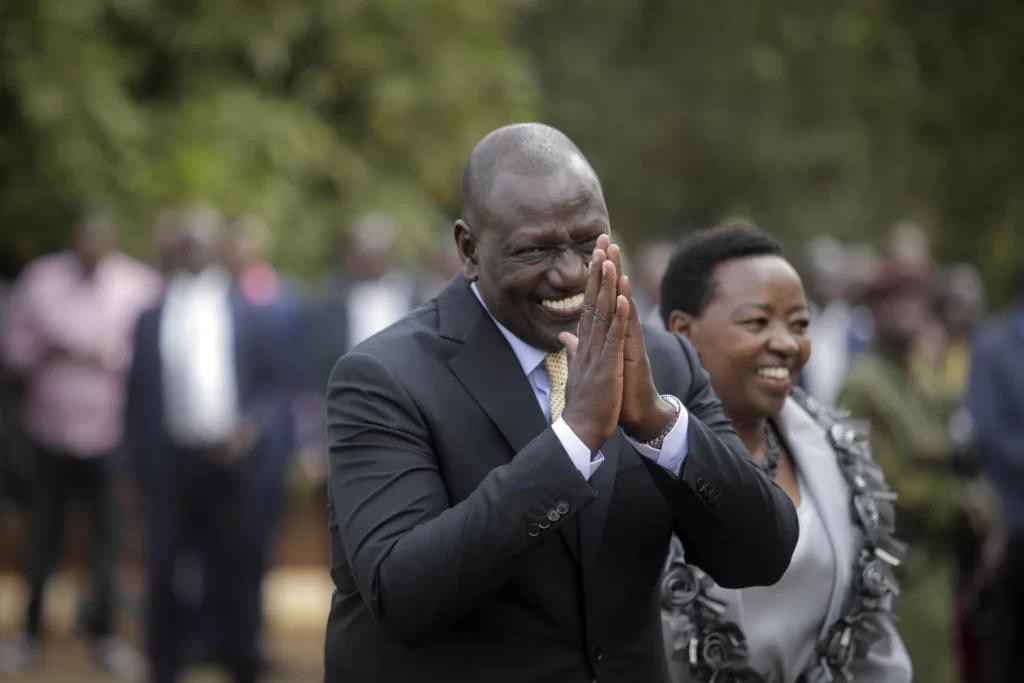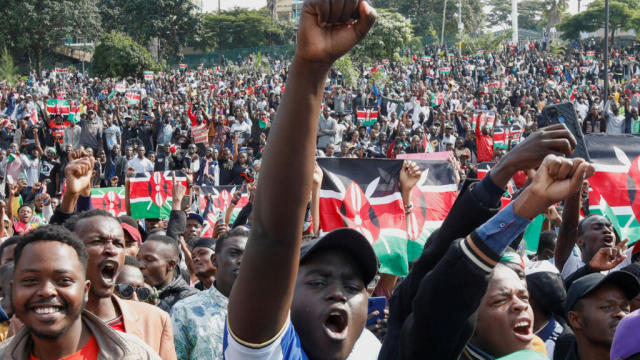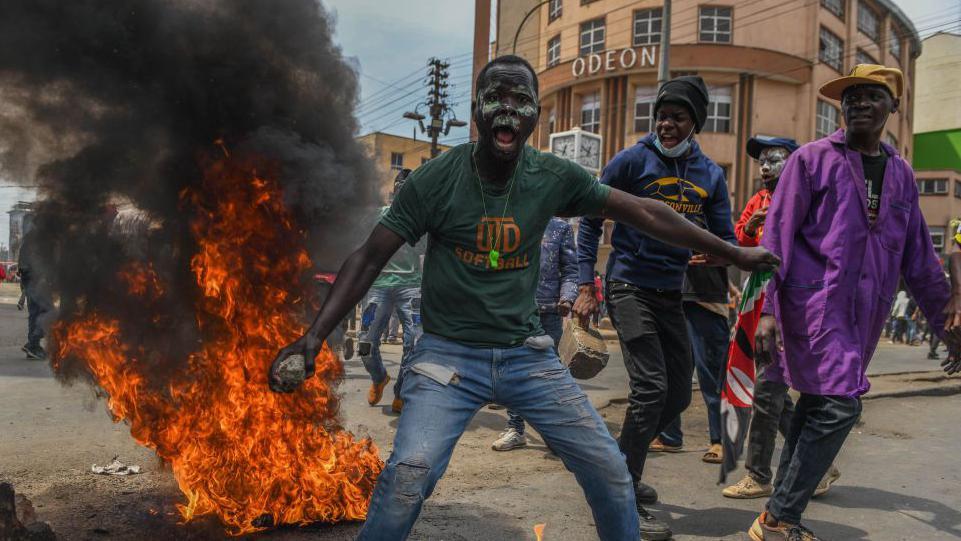Kenyan President William Ruto took decisive action on Thursday, dismissing nearly all his Cabinet ministers in a bid to form a new government that promises to be lean, efficient, and responsive to the people. This significant reshuffle comes in the wake of prolonged protests against high taxes and poor governance.

In a televised address, President Ruto announced the dismissal of the attorney general along with the majority of his Cabinet ministers. He stated that the ministries will now be managed by their permanent secretaries until new appointments are made. Ruto emphasized that his decision was influenced by public sentiment and that he would establish a broad-based government after thorough consultations.
Kenya has experienced three weeks of intense unrest, starting on June 25, when protesters stormed the parliament following the passage of a finance bill proposing tax increases. The protests have resulted in over 30 deaths and have evolved into broader demands for President Ruto’s resignation.

Despite the sweeping dismissals, Ruto confirmed that Prime Cabinet Secretary Musalia Mudavadi, a crucial political ally, would retain his position. Ruto explained that the dismissals were part of “a holistic appraisal of the performance” of his Cabinet. He articulated his vision for the new government, which aims to “accelerate and expedite the necessary, urgent, and irreversible implementation of radical programs to deal with the burden of debt, raise domestic resources, expand job opportunities, eliminate wastage and unnecessary duplication of government agencies, and slay the dragon of corruption.”
Ruto, who appointed 21 Cabinet ministers after his election in 2022, faced criticism for selecting political cronies and deviating from traditional practices. Some of the dismissed ministers had been reinstated from previous elected positions, while others were perceived as being rewarded with Cabinet roles after losing elections.

The dismissals are seen as a significant move to address public discontent and bring about substantial governmental reforms. Critics and supporters alike are watching closely to see if these changes will lead to the promised improvements in governance and economic management.
The ongoing protests and political upheaval have disrupted the country, with key sectors such as agriculture facing challenges, particularly in the distribution of fertilizer amid rising prices and allegations of fund mismanagement.
President William Ruto’s decision to overhaul his Cabinet reflects his response to public outcry over taxation and governance issues. The new appointments and structural changes in the government are intended to address the nation’s pressing challenges and restore public trust.
The Associated Press



